CAIRO – 6 September 2024: Prime Minister Mostafa Madbouly witnessed on Friday the signing of five memoranda of understanding (MoUs) with Chinese companies to enhance cooperation in telecommunications and information technology between Egypt and China.
Madbouly attended the signing ceremony during his visit to the Chinese capital, Beijing, to attend the 2024 Summit of the Forum on China-Africa Cooperation (FOCAC) on behalf of President Abdel Fattah El-Sisi and in the presence of Minister of Communications and Information Technology Amr Talaat.
The MoUs aim to establish three factories for manufacturing fiber optic cables and communication equipment, and 3 centers for exporting outsourcing services with 800 job opportunities in vital fields.
These areas include electronic circuit design, software development, as well as research and development in optical networks, green transformation technology, and semiconductors.
The MoUs also cover the establishment of a $300 million technological investment fund, a data center, 4 training centers and laboratories, in addition to capacity building for more than 3,250 specialists.
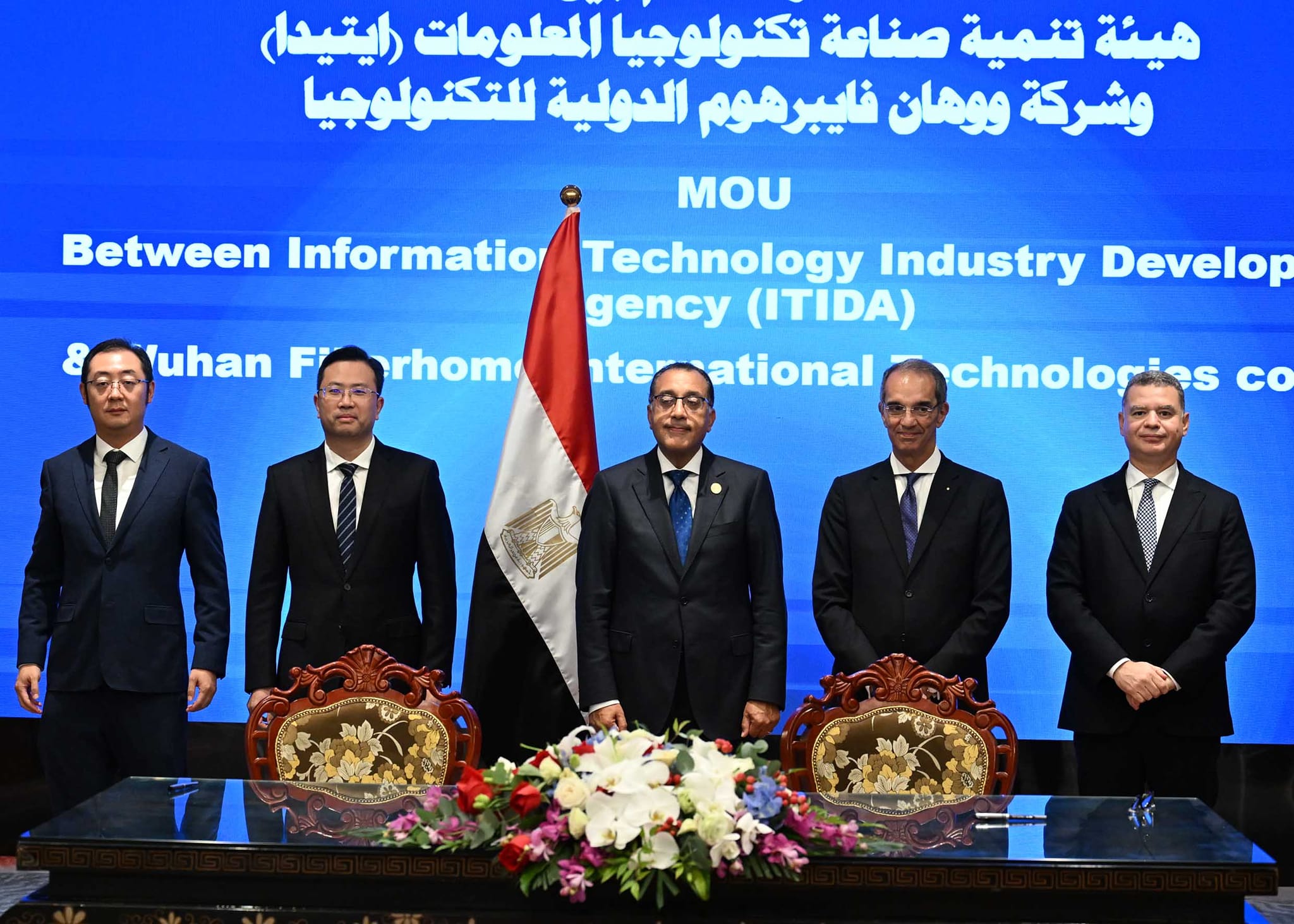
The first MoU entails cooperation between the Information Technology Industry Development Agency (ITIDA) and Wuhan FiberHome International Technologies company, a leading provider of IT and communication infrastructure and integrated services. The company plans to establish a factory in Egypt to manufacture fiber optic cables, producing one million core kilometers of fibers annually.
FiberHome will assembling 500,000 units of communication terminal devices, and 3,000 units of base station antennas yearly to serve the local market and export to the Middle East and North Africa.
The factory is expected to provide about 200 direct and indirect job opportunities in various specialties in the initial phase.
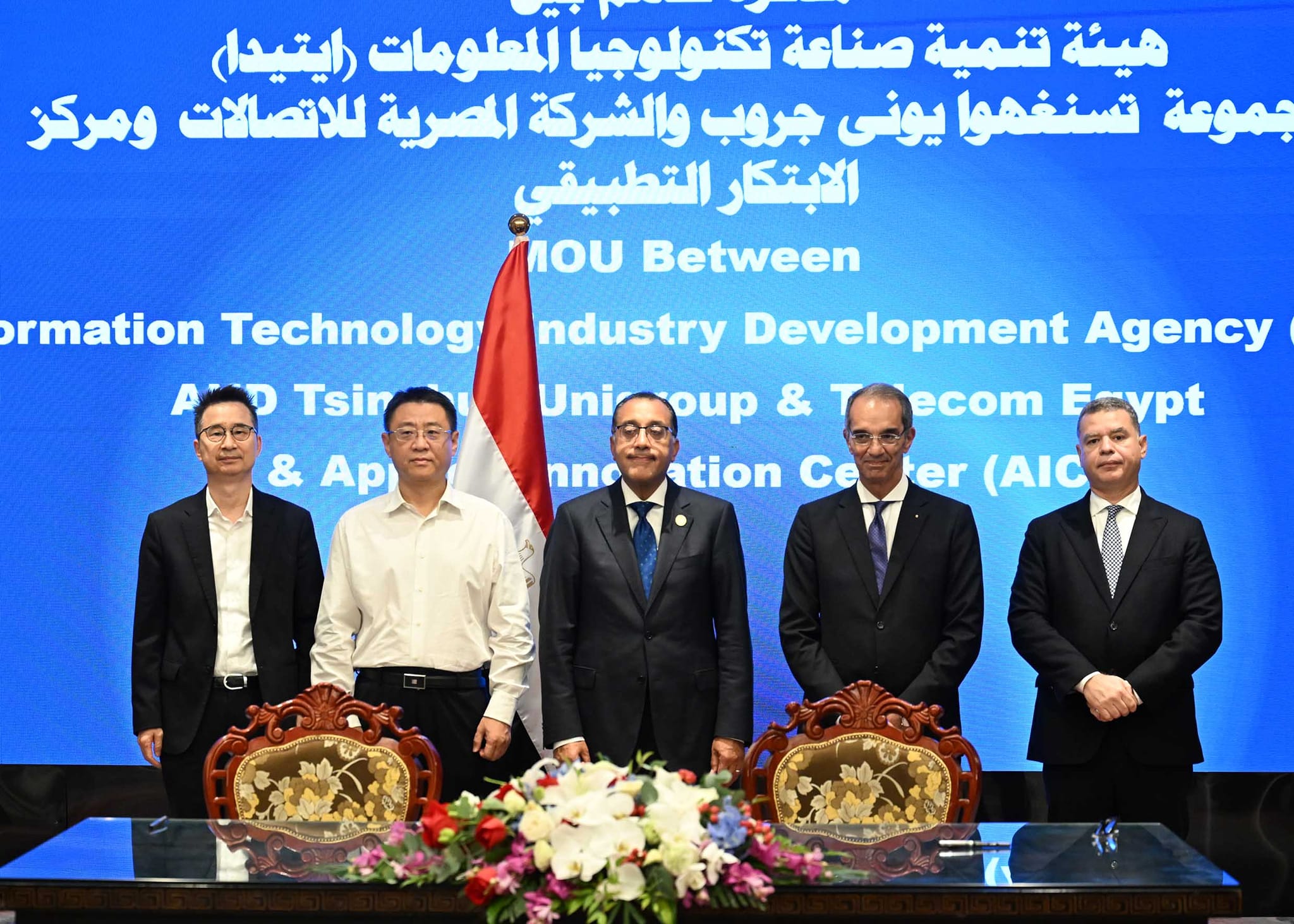
The second MoU involves cooperation between ITIDA, Tsinghua Unigroup, a leading technology and semiconductor industry group, Telecom Egypt, and the Applied Innovation Center to establish a data center and cloud services operation for the group in Egypt.
The MoU also includes collaborating on setting up a $300 million initial size technology investment fund, where the group and its affiliates provide 60% to 70% of the fund size.
It also encompasses studying the establishment of a research and development center in Egypt specializing in designing electronic chips and systems, as well as cooperation in the field of artificial intelligence applications to develop large language models (LLMs) in Arabic.
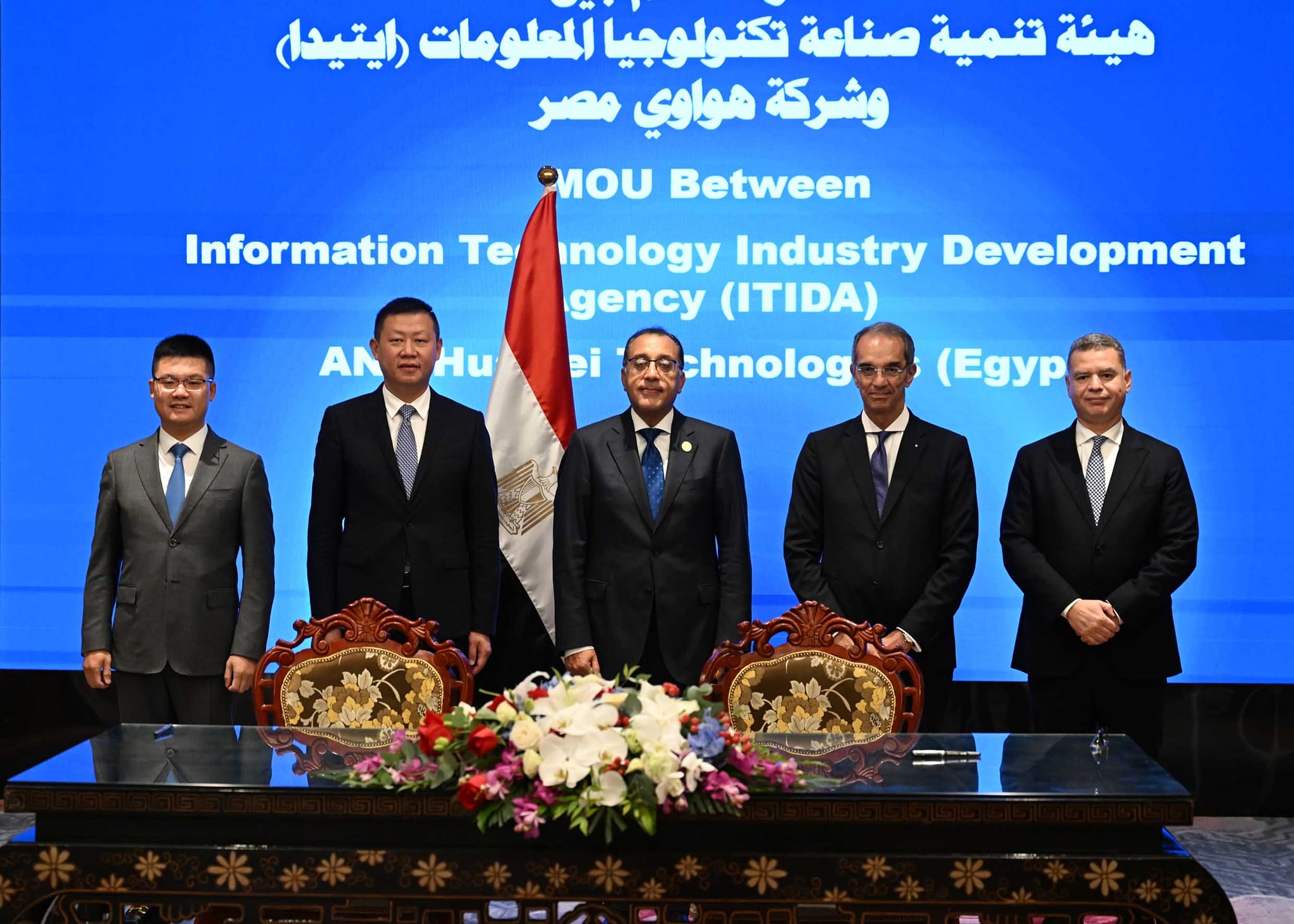
Under the third MoU, cooperation will be established between ITIDA and Huawei Egypt to expand the company’s operations in the country and launch Huawei Egypt's development center this year.
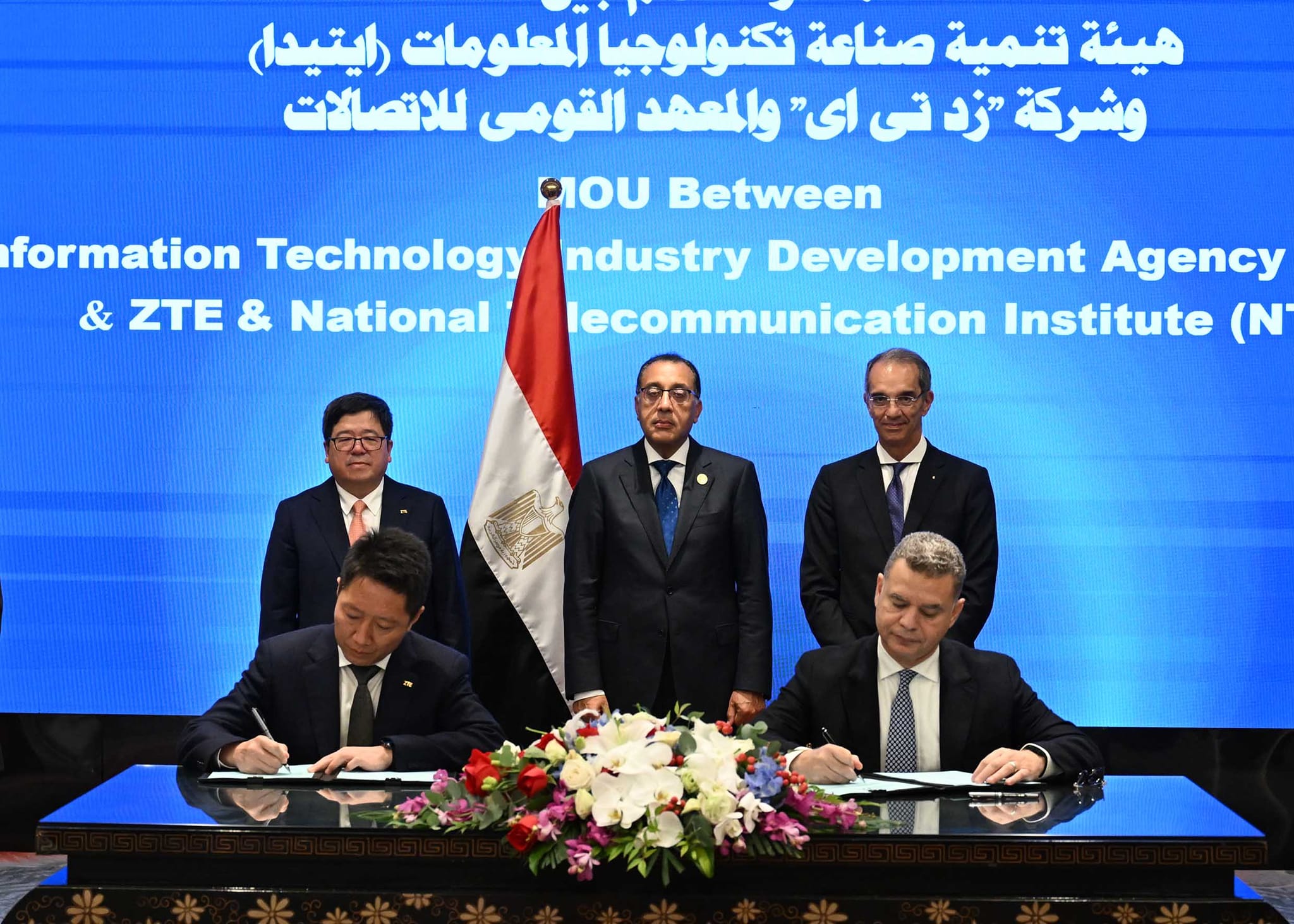
The fourth MoU entails cooperation between ITIDA, the National Telecommunication Institute (NTI), and ZTE, a global leading provider of integrated information and communication technology solutions, with the aim of initiating local manufacturing of several ZTE products.
Such products include fixed network stations and optical network distribution products. Additionally, the collaboration includes establishing two training centers equipped with 5G equipment and necessary GPON fiber optic network systems, along with associated management systems.
These training facilities aim to provide theoretical and practical professional training for up to 1,200 trainees in the field of information and communication technology over three years.
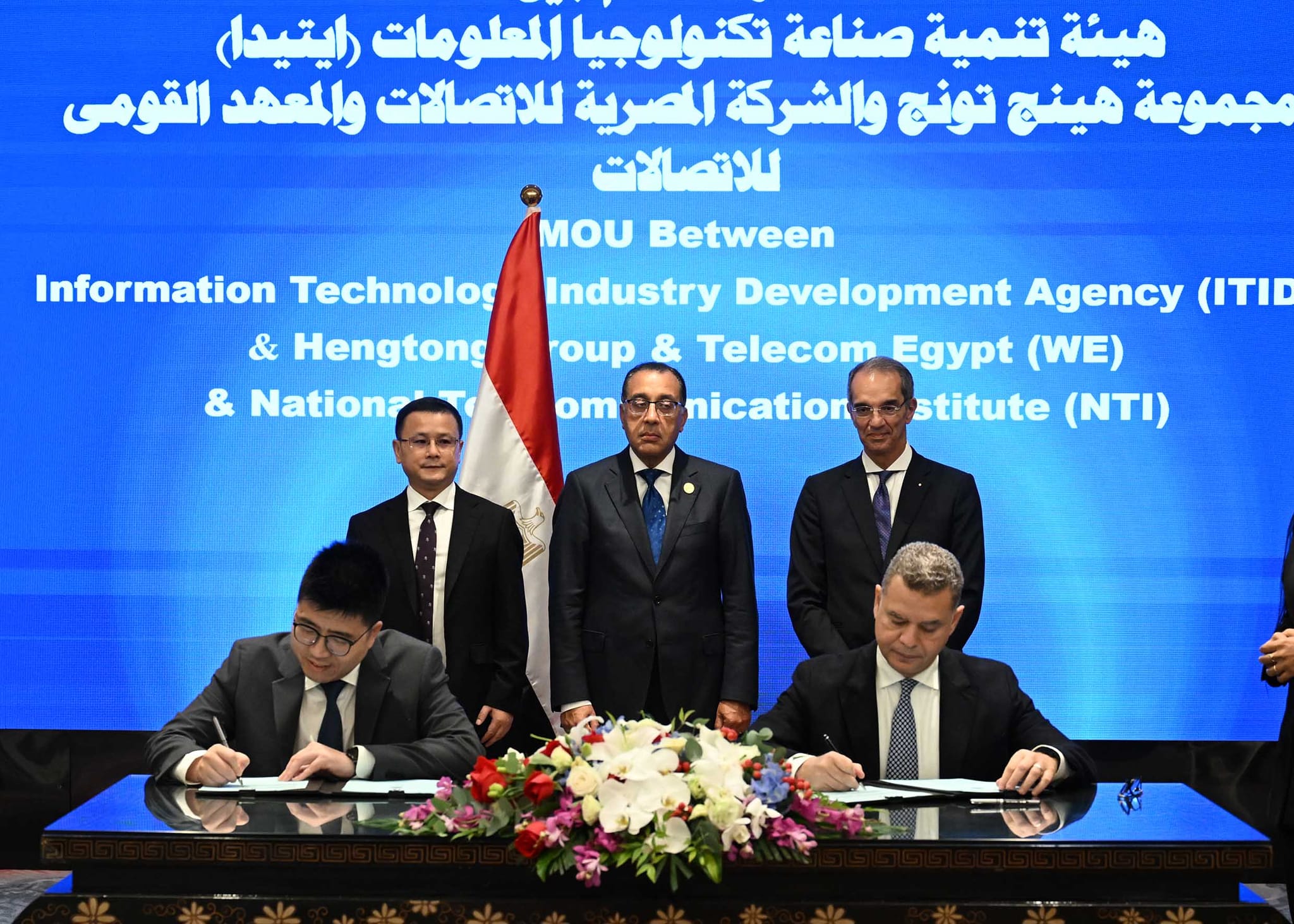
Finally, the fifth MoU focuses on cooperation between ITIDA, Telecom Egypt, the NTI, and Hengtong Group, where the group plans to establish a new company and launch its second factory in Egypt within the Suez Canal Economic Zone with a total investment of $15 million.
The main activities of the new company include manufacturing fiber optic cables, FTTX fiber optic network accessories, as well as operating and maintaining submarine fiber optic cables.
The new factory is expected to produce up to 3 million kilometers of fiber optic cables annually, exporting 40% of its production to Europe, the Middle East, and Africa.
Comments
Leave a Comment